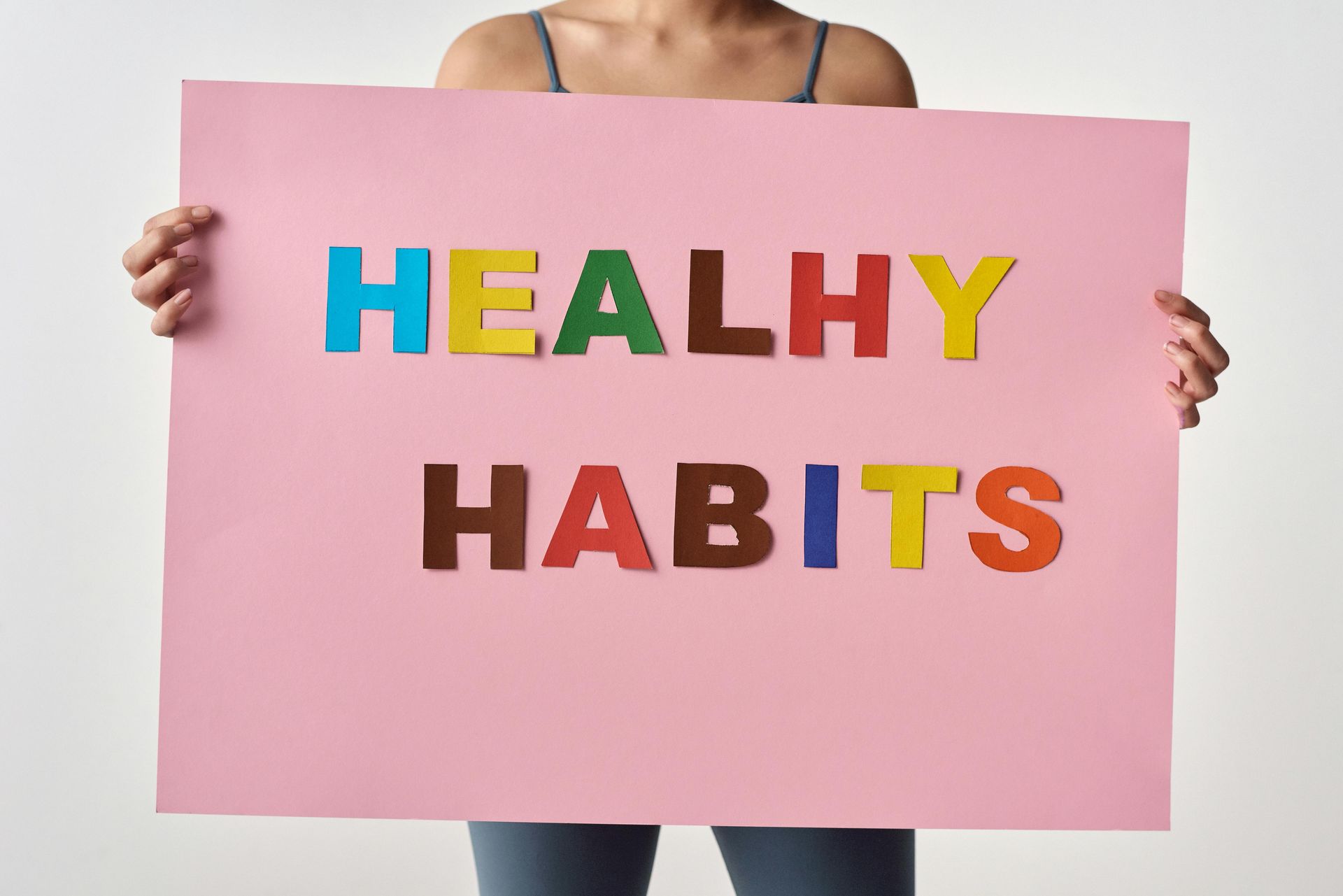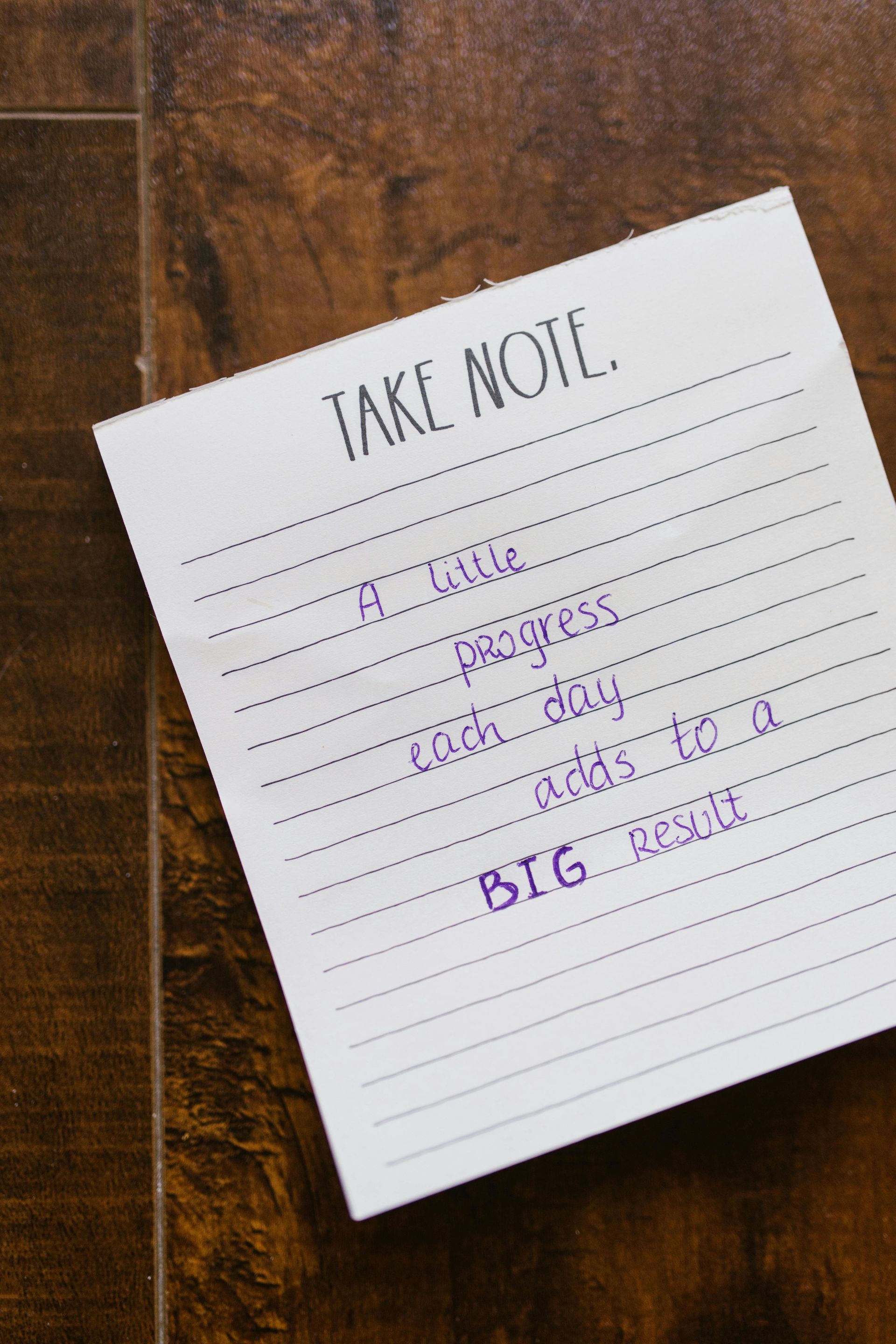Motivation vs Consistency
What Really Drives Health and Wellbeing Change?

When we set out to improve our health whether it’s through regular exercise, eating better, managing stress, or getting more sleep we often wait for a spark: motivation. We tell ourselves, “Once I feel ready, I’ll start,” or “I just need to get motivated.”
But here’s the hard truth: motivation is unreliable.
Motivation comes and goes. It’s easy to feel fired up after watching an inspiring video, reading a success story, or setting a New Year’s resolution. But what happens on the days when you’re tired, overwhelmed, or just not in the mood? That’s when motivation disappears—and with it, often, our goals.
So, if motivation can’t be trusted to stick around, what’s the alternative?
The Power of Consistency
Simon Sinek* points out, it’s consistency, not motivation, that creates real, lasting change. Consistency means showing up—especially when it’s hard, when you don’t feel like it, and when there’s no immediate reward. (Sinek, 2019, The Infinite Game).
You don’t need to overhaul your life overnight. In fact, trying to do too much too quickly can backfire because the brain will find it hard to process a big change. Instead, it’s the small, repeated actions that add up:
- Taking a 10-minute walk every morning
- Swapping one unhealthy snack for a healthier option
- Journaling before bed a few nights a week
- Practicing deep breathing for two minutes a day
These might not seem like much in the moment but over time, they compound into meaningful progress.
Why We Rely Too Much on Motivation
We’ve been conditioned to believe that change needs to feel exciting or dramatic. Social media, transformation stories, and fitness culture often highlight the “before and after,” but not the mundane in-between the real work of showing up daily without fanfare.
When we don’t feel motivated, we assume something’s wrong with us. We think we’re lazy or undisciplined. But in reality, we’re just human. Motivation isn’t meant to be a constant force. Motivation fluctuates, it comes and goes. Consistency, on the other hand, can be built like a muscle. You don’t need to feel ready you just need to start small, start now, and keep going.
The Power of Implementation Intentions
Health psychology offers a valuable tool for building consistency: implementation intentions.
This technique is proven to help you stay on track, even when motivation is low. It’s a simple yet powerful concept:
“If X happens, then I will do Y.”
Instead of relying on willpower or waiting for the perfect moment, you create a specific plan of action that links a particular situation with a predetermined behaviour.
For example:
- “If I wake up, then I’ll drink a glass of water.”
- “If it’s 7 AM on weekdays, then I’ll put on my workout clothes and stretch for 10 minutes.”
- “If I feel stressed at work, then I’ll take three deep breaths before replying to emails.”
This technique makes your behaviours more automatic. By setting up these mental “if–then” cues, you reduce decision fatigue and increase the likelihood that you’ll follow through, even when you don’t feel motivated.
Tips for Building Consistency in Health and Wellbeing
- Lower the barrier to entry
Don’t aim for perfect. Aim for doable. If 30 minutes of exercise feels overwhelming, start with 5. Small wins count. - Use implementation intentions
Create clear “if–then” plans to make your healthy habits automatic. This reduces the mental effort required to act.
Example: “If it’s lunchtime, then I’ll add one serving of vegetables to my meal.” - Focus on identity, not outcomes
Instead of saying, “I want to lose weight,” try, “I’m becoming someone who takes care of their health.” It’s easier to act consistently when your actions align with who you believe you are. - Track progress visually
Use a habit tracker or calendar. Even a simple checkmark reinforces progress and motivates follow-through. - Pair habits with existing routines
Attach new habits to existing ones: meditate after brushing your teeth, hydrate before your first coffee, or stretch while watching TV. This creates cues that help make the behaviour automatic. - Forgive lapses, and restart quickly
Everyone slips up. The key isn’t to be perfect; it’s to bounce back with kindness, not guilt.
Final Thoughts
I’ll be honest, there are plenty of times when I struggle to find the motivation to do the things I want to do, let alone the things I know are good for me. That used to really frustrate me. I’d wait around for the right mindset, for the energy to appear, for inspiration to strike. And sometimes it did but more often, it didn’t.
What I’ve come to realise is this: motivation is unreliable. Helpful when it shows up, yes but not something you can count on. What you can rely on is behaviour. When I focus less on how I feel and more on what I can do, even in a small way, I’m far more likely to take action. And action, no matter how small, creates momentum.
If motivation is the spark, then consistency is the fuel. One might get you started but only the other will keep you going. In the realm of health and wellbeing, real change doesn’t come from bursts of intensity. It comes from intention, repeated over time.
So, the next time you’re waiting to feel motivated, try this instead: show up anyway. Do one small thing. Take one step. Because in the end, it’s what we do regularly not occasionally that shapes who we become. Here’s to consistency over motivation, and kindness over criticism. Stay well.
Good Luck!
Thank you for taking the time to read this blog.
For more information and/or support with creating lasting habits, or for a no obligation free 15-minute telephone consultation, please contact:
info@evokinghealth.co.uk
Warm Wishes
Dr Neesha Patel
p.s If you haven’t already, then please take a minute to check out my NEW YouTube channel: https://www.youtube.com/@DrNeesha
where you will get weekly video updates on all things health psychology and behaviour change to help you create lasting healthy habits.
*Sinek, S. (2019). The infinite game. Portfolio/Penguin.









